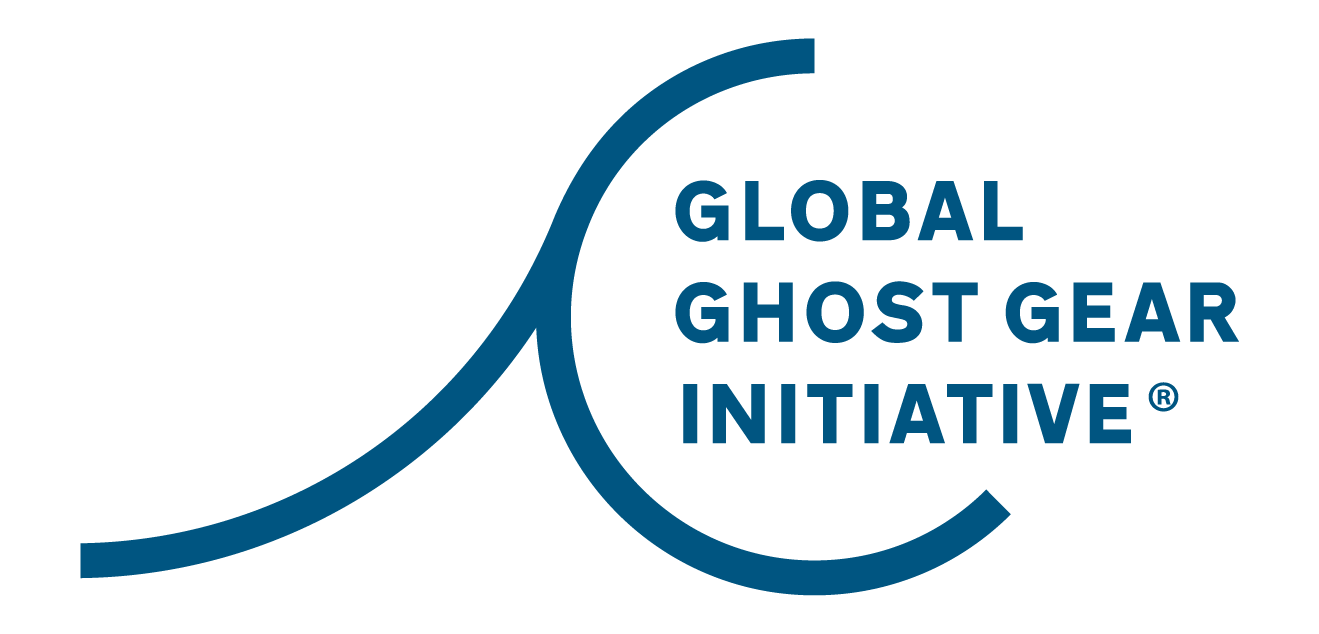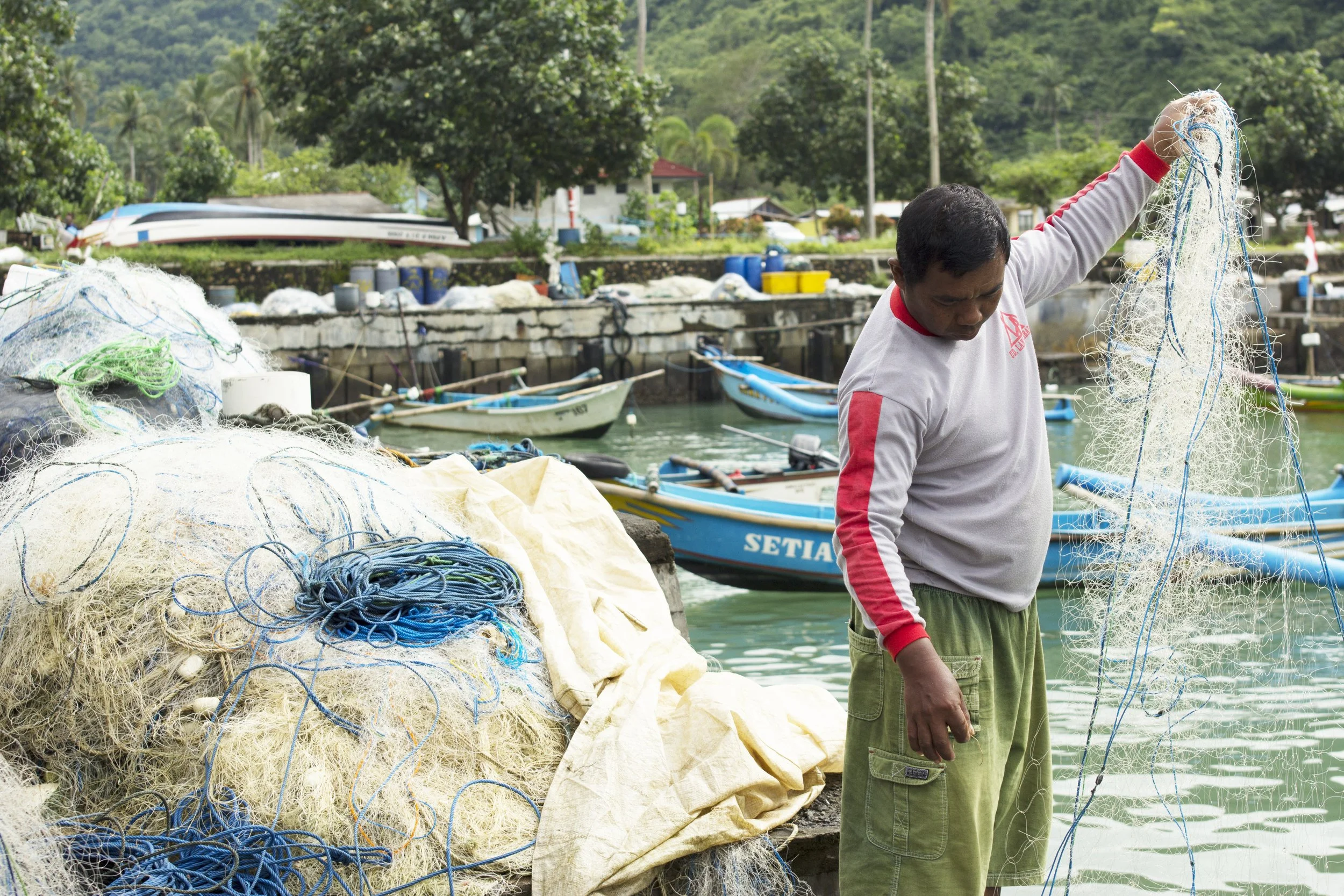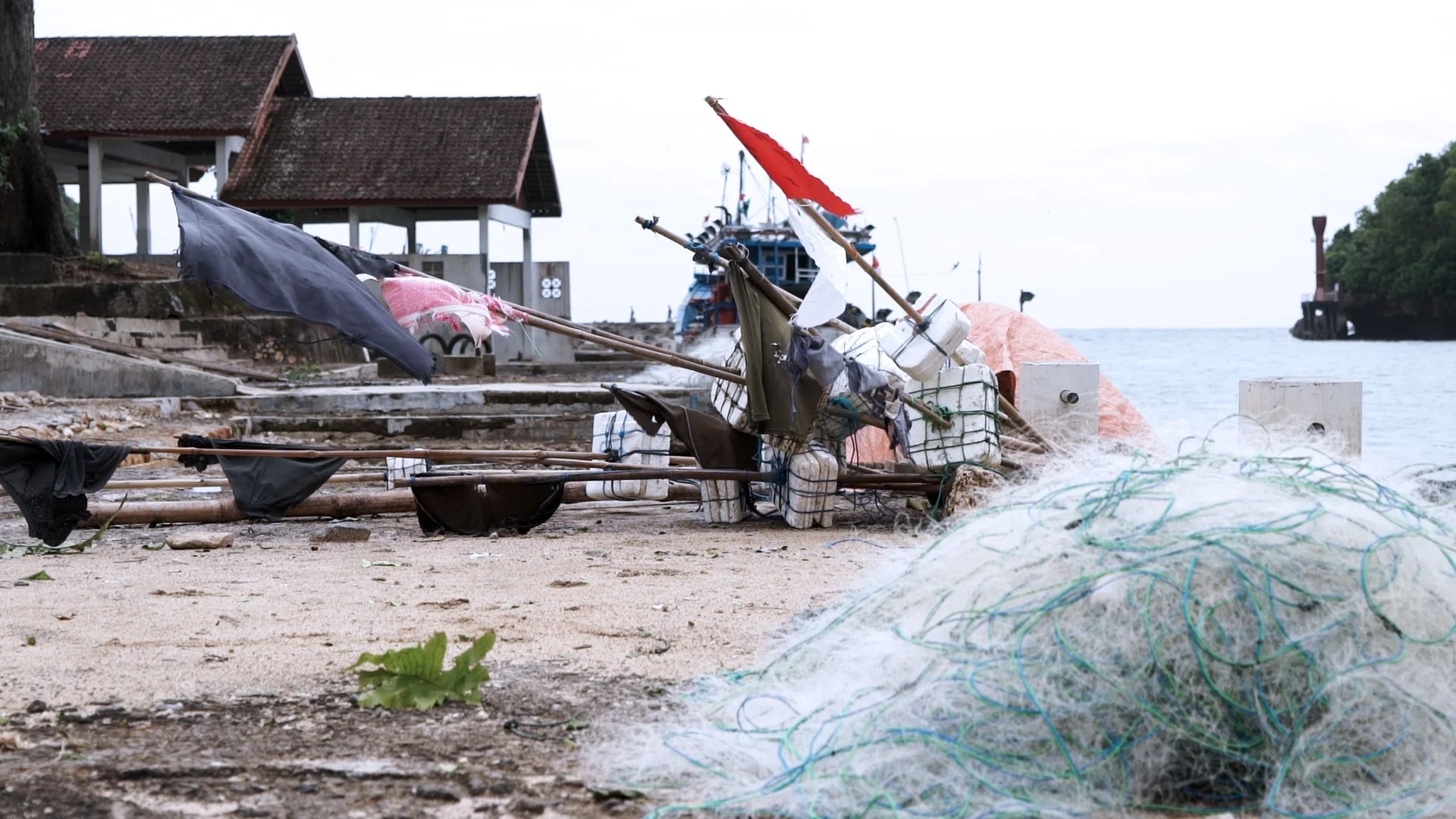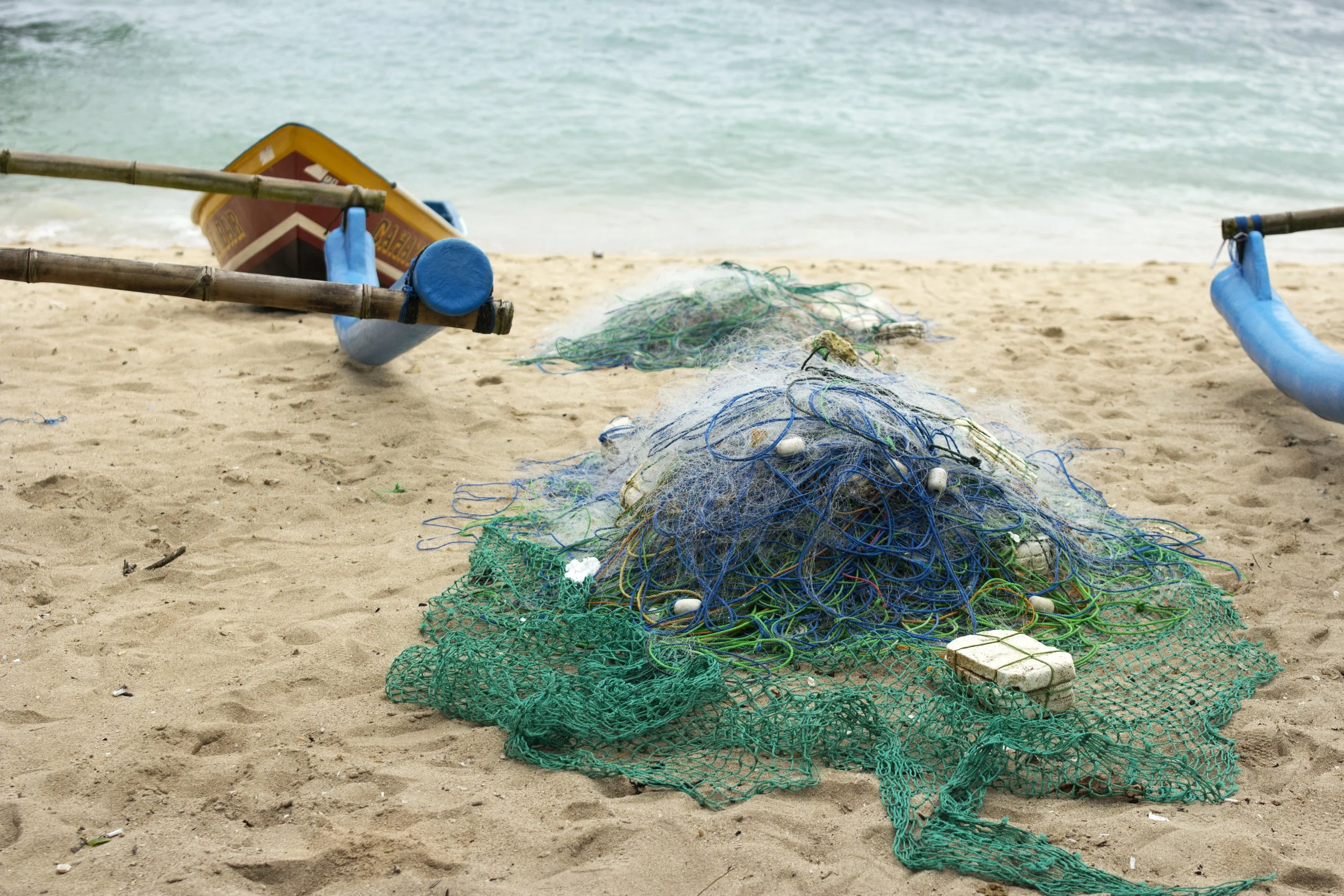GGGI Signature Project - Indonesia
Project Background
Led by the Government of Indonesia’s Ministry of Maritime Affairs and Fisheries (MMAF) in collaboration with the GGGI, the objective of the ALDFG 3R Pilot Project is to deliver pilot projects for the full ALDFG lifecycle across the “3Rs” —to reduce, retrieve, and recycle ALDFG—and to explore a circular economy blueprint that could be developed in Indonesia. In addition to generous funding from the Government of Netherlands, the activities are also being supported through funding from Bumble Bee Seafoods. The current phase of the project expands on the work that commenced in 2017 to assess the practical and economic feasibility of various gillnet gear marking options for small-scale and artisanal fisheries, prove gear marking could form part of a comprehensive fisheries management system to help reduce ALDFG and IUU, underpin and strengthen the provisional recommendations to the (then) draft UN FAO VGMFG, and scope the viability of a net recovery and/or recycling project.
The ALDFG 3R Pilot Project consists of 3 core work streams:
Reduce: Identify evidence about ghost fishing and implement relevant ALDFG reduction and mitigation measures as outlined in the GGGI C-BPF;
Retrieve: Encourage stakeholder collaboration initiatives towards removing or recovering ALDFG and improving port waste reception facilities.
Reuse and Recycle: Explore innovative approaches for recycling ALDFG.
Project Summary
(2022)
In 2022, to expand the engagement and exposure of Indonesia's 3R ALDFG Pilot Project, GGGI Policy Specialist Hannah Pragnell-Raasch was invited to be a guest speaker at the eDuFish webinar on Ghost Fishing. The event provided a unique opportunity to discuss the project alongside members of the Indonesian Government, including Dr. Hendra Yusran Siry, secretary of the Directorate General of Marine Spatial Management, Ministry of Marine Affairs and Fisheries, Indonesia and Ir Mansur, director of Fishing Vessel and Fishing Gear, Directorate General of Capture Fisheries, Indonesia. Over 100 attendees joined the event in addition to a live-stream on YouTube, allowing the GGGI to foster further engagement and awareness of the ALDFG 3R Project with Indonesian constituents, which is particularly important considering we have been unable to travel to Indonesia and engage with stakeholders on the ground due to complications from the the COVID-19 pandemic.
(2021)
Led by the Government of Indonesia’s Ministry of Maritime Affairs and Fisheries (MMAF) in collaboration with the GGGI, the objective of this phase of the project was to pilot solutions for the full fishing gear lifecycle to reduce, retrieve, reuse, and recycle ghost gear, and to explore a circular economy blueprint that could be developed for end-of-life fishing gear in Indonesia.
The phase of the project consisted of four key objectives:
Identify evidence about ghost fishing with reference to the GGGI C-BPF;
Remove ghost fishing gear in collaboration with local stakeholders;
Improve port waste reception facilities where possible;
Explore innovative approaches for the recycling of end-of-life gear and ALDFG.
The MMAF has continued to engage with several relevant stakeholders, including provincial and district governments, fishing port authorities, fishing net manufacturers, and recycling companies, who form part of the project team. Stakeholders are involved in relevant project components in line with the GGGI C-BPF. The MMAF has also been working to connect with several companies in Bandung, Indonesia that can accept fishing nets and gear for recycling, in the hope the companies can participate and join the team on this project.
To expand engagement and exposure of this work, GGGI Director Ingrid Giskes joined a number of Indonesian Government representatives as an invited keynote speaker to discuss the impacts of ALDFG on sustainable fishing during the Indian Ocean Rim Association's (IORA) webinar on “Developing Awareness Program and Mitigation Against Marine Debris Impacts Towards Sustainable Fisheries in IORA” on November 10, 2021. More than 70 people attended the webinar via Zoom, with many more joining via the live stream on YouTube. The webinar provided an opportunity to present the GGGI’s work undertaken to date in Indonesia. The GGGI’s work in Indonesia started with trialling fishing gear marking in Indonesian small-scale fisheries. The GGGI’s involvement has led up to this current phase of work, which includes piloting gear marking options at the manufacturer-level, implementing gear recycling and gear retrieval activities, and developing economic and policy blueprints to address ALDFG that could potentially be adopted by multiple provinces within Indonesia.
Project Summary
(2020)
Bumble Bee Seafoods, alongside the Dutch Government, provided support for the GGGI to continue our ghost gear prevention work in Indonesia together with the Indonesian Ministry of Marine Affairs and Fisheries (MMAF). The project focused on implementing marking of fishing gear at the manufacturer level; exploring fishing gear recycling opportunities in Indonesia; and removing lost or discarded fishing gear from marine ecosystems.
The project also helped to develop a recycling business model and support local regulations in Pekalongan and Sadeng, two provinces of Java, Indonesia. These provinces were chosen for their diverse fishing conditions, which will allow the project to be more easily replicated in other locations. Based on these programs, the GGGI has helped to develop economic and policy blueprints that can be adopted by other provinces, helping to ensure policy support for net recycling and providing a viable end-of-life gear solution for artisanal fishers. As part of this body of work, the GGGI has also collaborated with manufacturers of gillnets and pot/trap fisheries to institute gear marking in these provinces. The project also featured targeted gear removal activities in sensitive habits and important fishing grounds.
(2019)
During the United Nations Committee on Fisheries (COFI) 32, the Committee instructed the UN FAO to conduct a number of pilot projects to explore the feasibility of fishing gear marking and ghost gear retrieval, particularly in developing countries. To test the applicability of the UN VGMFG, GGGI has worked with partners in Indonesia since 2017 to implement locally-appropriate gear marking and recycling schemes for the country’s gillnet fishery. In 2019, the project moved from its second to third phase. With our partners, we completed a pilot study in Indonesia to assess the practical and economic feasibility of various gillnet marking options for small-scale artisanal fisheries.
Additionally, the study looked at drivers needed to address ghost gear in the Indonesian context—such as retrieval and recycling. The project focused particularly on gillnets and pots/traps, which are commonly used in the region and represent two of the most harmful forms of ghost gear as identified by the GGGI C-BPF due to their high loss potential and high probability of ghost fishing once lost. This study found decreased government subsidies of gillnets to small scale fishers, locally managed recycling options, targeted removal of gear in sensitive habitats, and the implementation of port reception facilities were needed to prevent ghost gear and combat illegal, unregulated, and unreported (IUU) fishing.
Following the success of the phase two study, a large stakeholder workshop co-hosted by the GGGI and UN FAO was held in Bali in June 2019 to begin the third phase of work. Testing of gear marking technologies continues in the region with the Indonesian Ministry of Maritime Affairs and Fisheries, the Fishing Technology Development Centre in Semarang, the Indonesian Directorate of Fishing Vessels and Gears, the Centre of Fisheries Research, local fishers, and other important partners. Project Objectives for this phase of work were to:
Assess applicability of the UN VGMFG and GGGI C-BPF in small scale fisheries in Indonesia;
Work with local stakeholders to identify key drivers for gear loss in the region and remove gear from sensitive habitat;
Assess availability of end-of-life gear disposal options and develop a plan to implement portside collection facilities in two pilot sites;
Test innovative gear marking technology using locally available biodegradable materials;
Facilitate discussions and recommendations with the fishing industry and other stakeholders on the best solutions to prevent gear loss and to aid in its removal.
(2018)
Since 2017, GGGI has been working on a project with the Centre for Fisheries Research, Indonesia, funded by UN FAO. The work has focused on testing approaches to marking gillnets in small-scale Indonesian fisheries as a tool for ALDFG and IUU prevention. With further funding from the Dutch government, in December 2018 the team also started testing the potential application of Fibrecode tags on fishing gear so that the gear can be scanned with a mobile device and provide information about its ownership and history, ultimately meaning that traceability can be provided down to specific nets. The team at Septillion Technologies developed a tag fixture that can be made from recycled fishing nets, meaning the tags can potentially be recycled along with the nets at end-of-life.
(2017)
This pilot – the first of its kind in a developing world fishery – tested various approaches to marking and tracking fishing gear in a gillnet fishery ahead of the FAO Technical Consultation and the FAO Committee on Fisheries (COFI) 33 meeting in July 2018. It provided valuable feedback from the field on the efficacy, methodology and barriers to gear marking as a tool for addressing ALDFG and potentially illegal, unregulated and unreported (IUU) fishing. Following the learnings from the project’s first phase, the GGGI further developed the scope of ghost gear mitigation in the region through the expansion of successful components from Phase 1 of the pilot project. Phase 2, which occurred in 2018, had a specific focus on embedding and improving current management practices for gillnets, including gear marking, end-of-life net management, lost gear reporting and other best practices.
Project partners
Partners
Government of Indonesia’s Ministry of Maritime Affairs and Fisheries (MMAF)
Septillion Technologies
Funders
Bumble Bee Seafoods
Food and Agriculture Organization of the United Nations (UN FAO)
Government of the Netherlands





